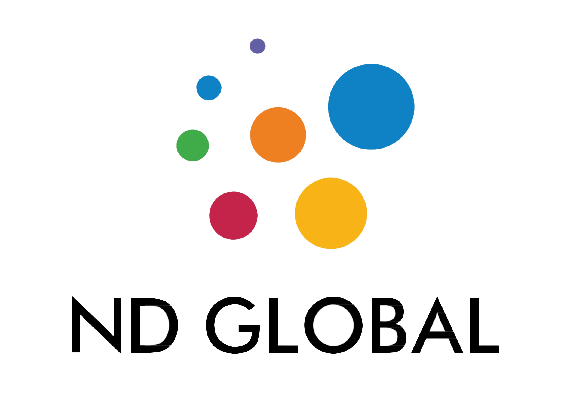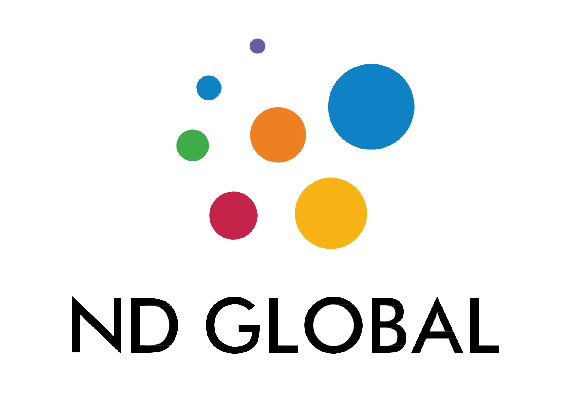Introduction – Healthcare and pharmaceuticals are among the numerous areas in which artificial intelligence (AI) is revolutionizing. The potential uses of generative AI, which can create new data based on existing data, have garnered significant attention in recent years. Generative AI has a vast and alluring potential that can yield a multitude of results. But exercising caution is necessary. The enormous potential of AI necessitates thorough consideration before the consequences. This review is especially crucial for the pharmaceutical business, which is heavily regulated and has a reputation for delayed development. When new technology is implemented incorrectly, there might be serious consequences.
Generative AI’s Place in Drug Discovery in Healthcare Drug discovery is one possible use case for generative AI in healthcare. Forbes claims that generative AI can help in drug research by forecasting a medication’s potential interactions with a certain protein or target. Generative artificial intelligence (AI) evaluates vast volumes of data using machine learning algorithms, producing unique compounds that may be employed as medications more quickly than with conventional techniques. This may ultimately result in the creation of more potent medicines for a variety of illnesses by cutting down on the time and expense involved in drug research.
Health Imaging: Generative AI can produce synthetic images that resemble real images but with reduced noise and faster scan times, potentially leading to a considerable improvement in medical imaging. For instance, generative AI research can be used to produce artificial MRI pictures, which will aid medical professionals in diagnosing patients more precisely and developing more effective treatment regimens. It might be challenging to spot minute variations or anomalies in typical MRI scans because of the high levels of noise in the pictures. Researchers can lessen this noise and produce images that are cleaner and more accurate by utilizing generative AI to generate synthetic MRI images.
Individualized Medical Care: Healthcare is using AI to personalize medicine. AI can uncover genetic abnormalities that may cause diseases by analyzing a patient’s genomic data. It may also provide personalized treatments based on the patient’s unique genetic composition. Precision medicine is a method of treating patients that enables more individualized and focused care for each patient. It has the potential to transform healthcare completely.
AI might be used, for instance, to examine a patient’s genetic information and pinpoint the precise genetic abnormalities causing a given cancer. Subsequently, this information might be utilized to provide tailored therapy alternatives, including medications made to target certain genetic abnormalities specifically.
Clinical Trial Structure: AI is also useful in the design of clinical trials. Artificial intelligence (AI) mimics clinical studies and offers insights into possible outcomes by creating synthetic patient data. This can assist pharmaceutical companies in making better-informed judgements about which medications to launch and how to create more successful and efficient clinical trials.
Repurposing Drugs: Generative AI identifies novel therapeutic applications for current medications by examining them along with their targets. This may result in the creation of novel treatments for illnesses that were previously incurable, as well as help pharmaceutical companies save time and money throughout the drug development process.
A therapeutic candidate intended to treat idiopathic pulmonary fibrosis (IPF) has been designated as an orphan medication by the FDA, according to Insilico Medicine. This company specializes in AI-driven drug discovery. Generic chemistry driven by artificial intelligence was used to discover and design the medication. The structures of tiny compounds that might interact with the target proteins linked to IPF were simulated using AI algorithms. This made it possible to identify a novel substance that may be used to treat the illness.
Artificial Intelligence and Market Entry: One of the most complicated connections in the pharmaceutical value chain is market access, and research indicates that its complexity has increased dramatically in recent years. As new digital technologies become more widely used, payers, practitioners, and patients have different expectations, and it is becoming more challenging to come up with effective solutions due to shifting market dynamics.
The best tool for slicing through this complexity and making data-driven decisions on market access, price, quicker reimbursement, stakeholder engagement, and other aspects is artificial intelligence (AI).
Pharma & AI Marketing: Artificial Intelligence (AI) can completely transform pharmaceutical organizations’ product marketing strategies. Generative AI assists businesses in creating more focused and efficient marketing campaigns by evaluating vast volumes of data on the behaviour of human-computer pairs. This could entail figuring out which customer-reach methods are the most efficient, adjusting messages to target particular complicated categories or simply a single segment, and figuring out which kinds of marketing campaigns are most likely to increase engagement and revenue.
AI’s capacity to recognize patients with unusual diseases and make accurate predictions about whether a doctor will shift their prescription focus is one of the industry’s biggest advantages.
AI can also be used to analyses real-time data and provide doctors and patients with tailored advice. For example, Novo Nordisk has integrated artificial intelligence (AI) into its pens, which track, monitor, and offer forecasts and guidance on a patient’s health, providing physicians and patients with a comprehensive view of the patient’s health.
Pharmaceutical marketers are finding that generative AI is an effective tool for creating content quickly, as it facilitates the creation of articles, social media postings, images, and video courses. It cannot, however, fully account for the complexity of human behaviour and healthcare decision-making; therefore, human monitoring is essential to prevent prejudices from being reinforced, vulnerable populations from being singled out, or ethical standards from being broken.
Extra advantages: AI’s capacity for data analysis also makes it possible to diagnose diseases like cancer and diabetes at an early stage, which can help stop conditions from getting worse. Although this is fantastic for patients, it also means that the pharmaceutical sector needs to adjust to changes in the market, including the competition from non-drug sources like digital treatments and nanobots.
Risks:
Even though artificial intelligence has numerous advantages, concerns about privacy and invasion of patients’ lives still exist. The application of AI in the pharmaceutical sector must carefully balance the needs of physicians and patients with respect to privacy protection.
AI advantages for the pharmaceutical sector:
Generative AI has a wide range of advantages for the pharmaceutical industry that extends beyond the previously listed ones and impacts every stage of the process, from marketing to production.
- Streamlined Manufacturing: To maximise output and cut expenses, Pfizer has integrated AI and machine learning into their manufacturing facilities. They track manufacturing procedures and spot areas for development, such as cutting waste, raising productivity, and enhancing quality control using real-time data analysis. Merck is another company that has used AI and machine learning to create a digital twin in its manufacturing process. By simulating the manufacturing process, the digital twin pinpoints areas that need to be improved, such as lowering batch-to-batch variability and raising product quality. AI can reduce waste and increase yield in industrial processes by determining the most economical and efficient manufacturing techniques.
- Better Patient Outcomes: AI can examine patient data to find trends and connections, which helps doctors diagnose patients more precisely and create more efficient treatment regimens.
- Enhanced Regulatory Compliance: By evaluating data and spotting possible problems before they become serious, artificial intelligence (AI) can guarantee regulatory compliance and lower the risk of non-compliance.
- Better Supply Chain Management: You may make sure that medications are available when and where they are required by forecasting demand, spotting bottlenecks, and optimising inventory levels.
- Artificial intelligence (AI) can forecast future drug demand by analysing data on past sales, weather trends, population demographics, and other variables. This helps pharmaceutical businesses prevent overstocking or understocking by enabling them to manage their production and delivery more precisely.
- AI is also used to track supply chain activities in real-time, spotting possible interruptions and bottlenecks. This makes it possible for pharmaceutical companies to deal with these problems ahead of time, avoiding delays in medication distribution and guaranteeing that medications are available when and where they are needed.
- To optimise inventory levels, AI examines data on sales trends, expiration dates, and other variables. Keeping medications from going bad on the shelf and guaranteeing that there is always enough stock to fulfil demand helps to reduce waste.
- End-to-end supply chain visibility, from raw materials to final goods, is made possible by artificial intelligence. This makes it possible for pharmaceutical companies to take corrective action before issues develop by helping to discover any gaps or inefficiencies in the supply chain.
Conclusion: AI must be at the center of everything because it will provide us with a far greater understanding of what’s happening, not only in the pharmaceutical industry but also in the healthcare sector. AI is also transforming the pharmaceutical industry’s business model; some companies are treating all diabetes patients, no matter which medication they take, utilizing an ecosystem approach. Because data and complexity are abundant, non-linear models are required to extract meaningful links from the data; artificial intelligence (AI) has emerged as a crucial tool for the pharmaceutical sector. Drug research, clinical trials, medical affairs, regulatory, market access, sales and marketing, and patient care have all been transformed by artificial intelligence (AI), and the pharmaceutical industry needs to use AI as a fundamental tool to support most of its activities in order to adapt and prosper going forward.
How ND Global can help – ND Global plays a pivotal role in harnessing the power of artificial intelligence (AI) to transform the pharmaceutical industry. Here are some ways ND Global can contribute:
- AI Integration and Implementation: ND Global assists pharmaceutical companies in integrating AI into their operations seamlessly. This involves understanding the specific needs and challenges of each company and deploying AI solutions tailored to optimize drug discovery, streamline manufacturing processes, improve patient outcomes, ensure regulatory compliance, and enhance supply chain management.
- Custom AI Solutions: ND Global develops custom AI solutions tailored to the unique requirements of pharmaceutical companies. Whether it’s developing algorithms for drug discovery, predictive analytics for patient care, or optimization tools for manufacturing and supply chain management, ND Global provides innovative AI solutions to address specific challenges and drive business success.
- Data Management and Analysis: ND Global helps pharmaceutical companies manage and analyze vast amounts of data efficiently. This includes collecting, cleaning, and organizing data from various sources, leveraging advanced analytics and machine learning techniques to extract valuable insights, and using predictive modeling to anticipate market trends, identify potential risks, and optimize decision-making processes.
- Regulatory Compliance and Risk Management: ND Global supports pharmaceutical companies in ensuring regulatory compliance and managing risks associated with AI implementation. This involves developing robust governance frameworks, implementing rigorous data security measures, and conducting thorough risk assessments to mitigate potential legal, ethical, and operational risks.










